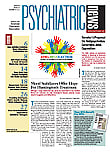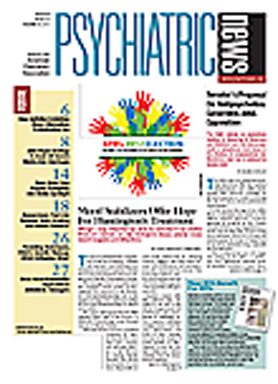The glucocorticoid receptor—the major regulatory element of people’s stress hormone apparatus—may also play a role in the susceptibility to psychiatric illness. Or, more specifically, a gene that modulates glucocorticoid receptor functioning—the FKBP5 gene—may be involved.
For example, one study found that a particular variant of the FKBP5 gene called rs9470080 increased the likelihood that being a victim of child abuse will raise the risk for posttraumatic stress disorder. Another study found that the same variant increased the likelihood of childhood trauma provoking suicide.
Now scientists report that other variants of the FKBP5 gene increase the probability that childhood trauma will contribute to development of depression. The lead investigator was Petra Zimmermann, Ph.D., a scientist at the Max Planck Institute of Psychiatry in Munich, Germany. The results appeared in the October American Journal of Psychiatry.
The study included a large community sample of almost 900 people. They were between 14 and 24 years old when the study began. None had had a major depression. All were evaluated for adverse life events, and all were genotyped for the FKBP5 gene. The subjects were then followed for 10 years to determine whether any of them developed major depression.
The scientists found that experiencing psychological trauma was a risk factor for the development of major depression. A major depressive episode occurred in 27 percent of subjects who had been exposed to severe trauma, such as childhood sexual abuse, rape, physical violence, or a serious accident, whereas it occurred in 17 percent of those who had not been so exposed—a significant difference.
The scientists then found that possessing any of five variants of the FKBP5 gene augmented the capability of traumatic events to precipitate a major depression. Individuals who had been traumatized and who carried two copies of any of the five variants were more likely to experience a major depression than individuals who had been traumatized and who carried only one copy. For example, 55 percent of the subjects who carried two copies of the variant rs36800373 and who had been severely traumatized experienced major depression by age 34, compared with 25 percent of subjects who carried only one copy of this variant and who had been severely traumatized.
Thus, “trauma exposure during childhood and adolescence was a strong risk factor for developing subsequent depression in genetically vulnerable individuals, even within the extended time period of 10 years,” the researchers concluded.
In related research, Zimmermann told Psychiatric News that she and her team found that high concentrations of the protein made by the FKBP5 gene increased depression susceptibility. As a result, one of them is developing FKBP5 protein inhibitors. They will then look to see whether any of these inhibitors have anti-depressant capability, especially in people with high FKBP5 protein levels.
The study was funded by the German Federal Ministry of Education and Research and the German Research Society.

